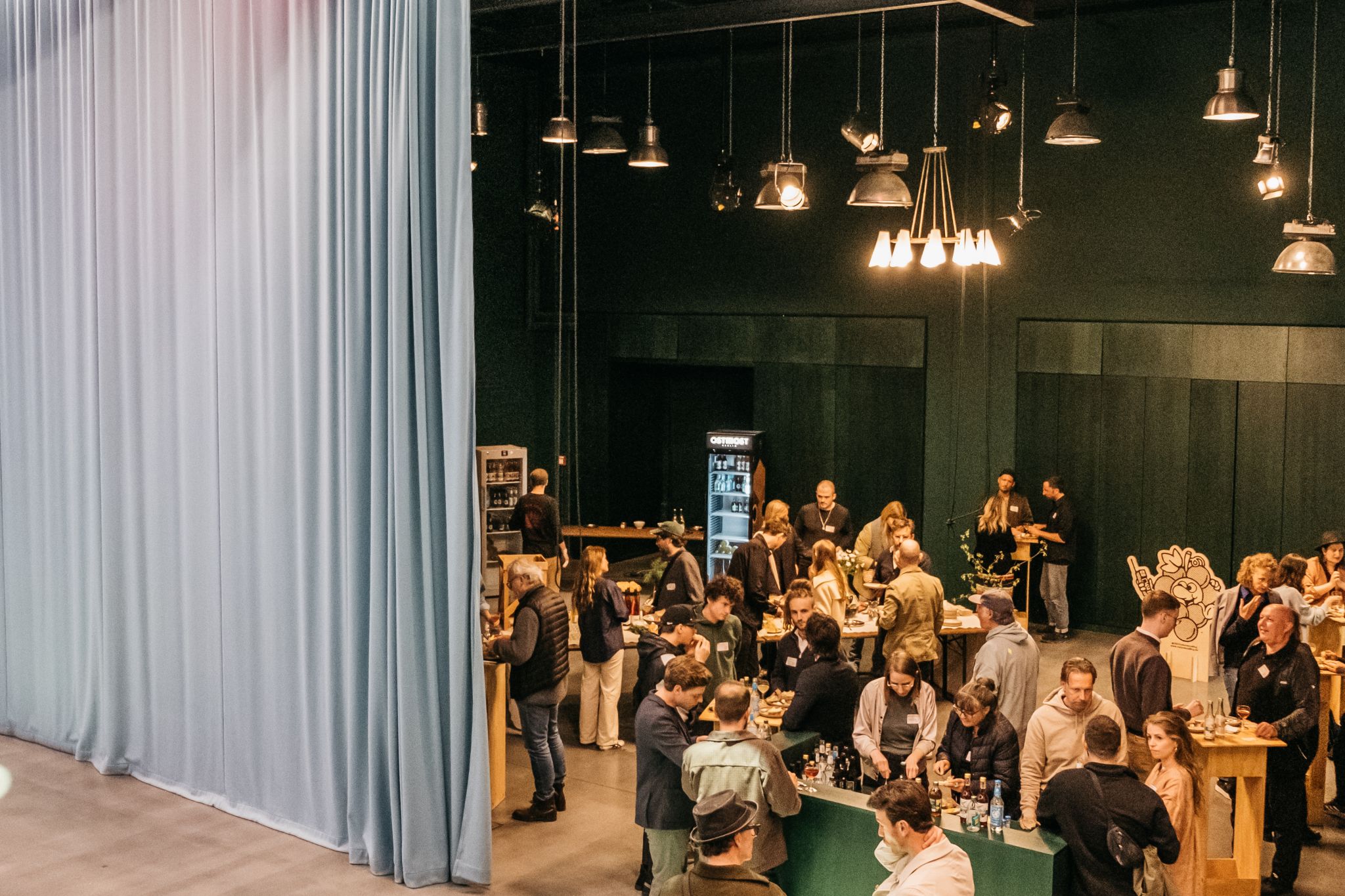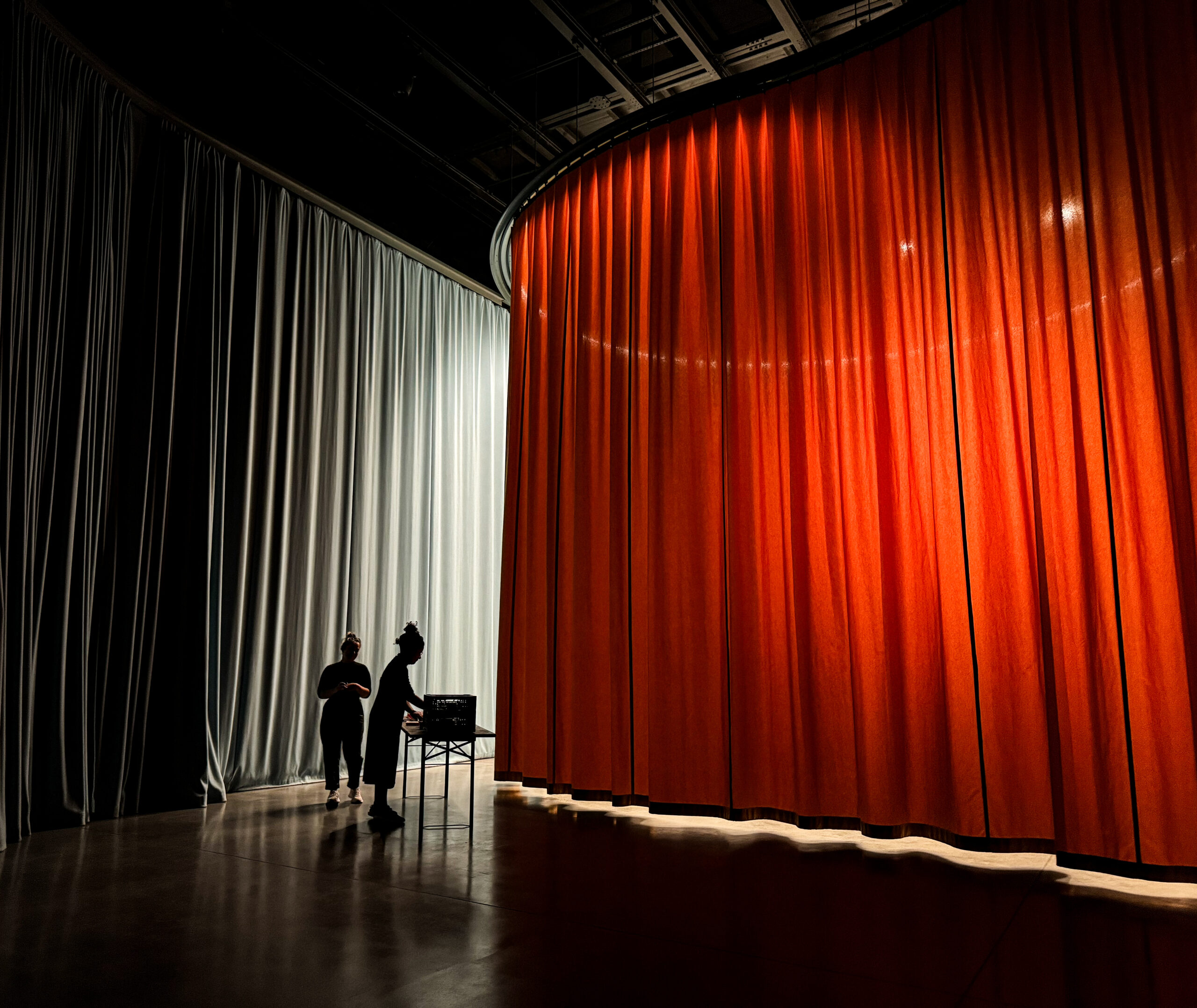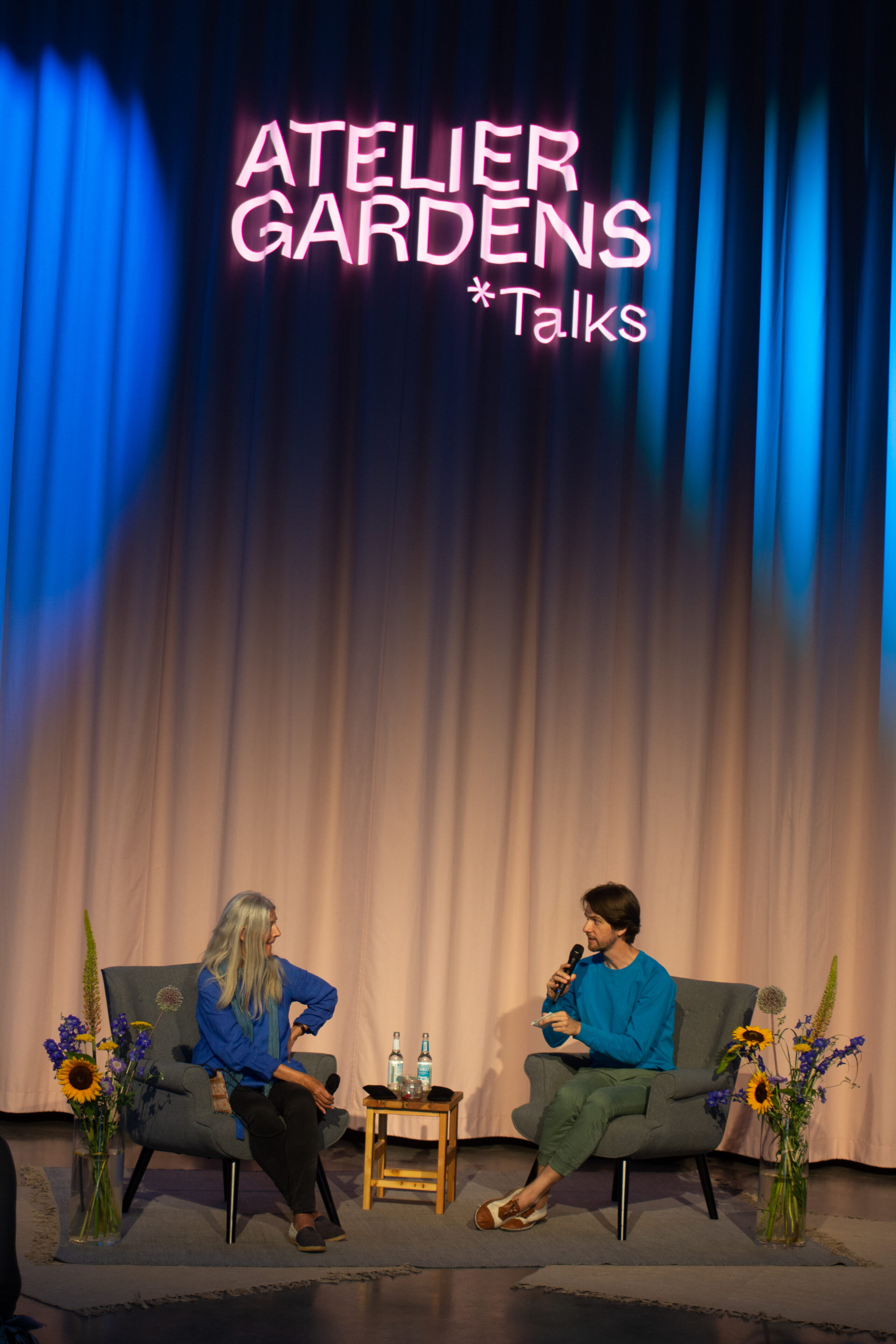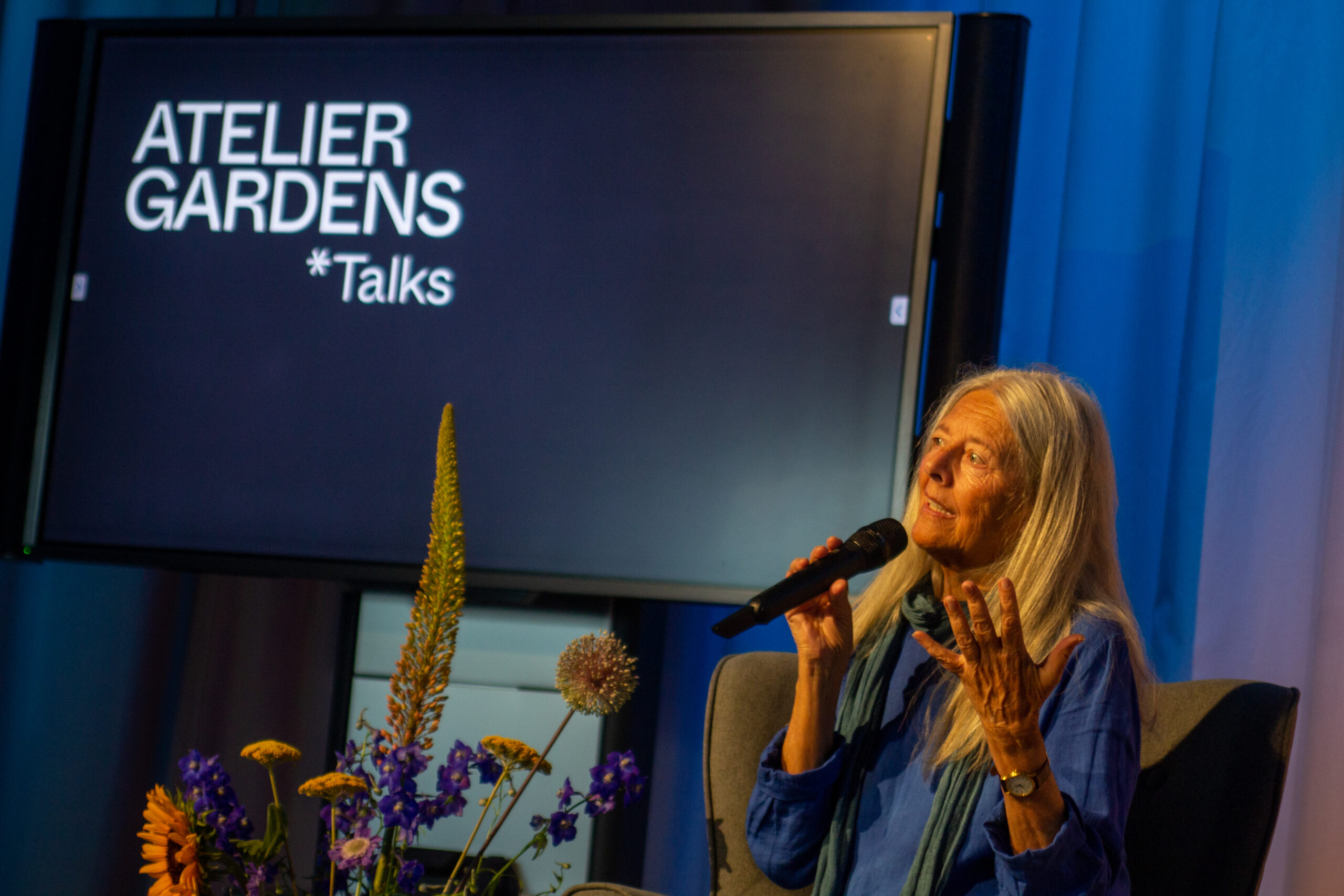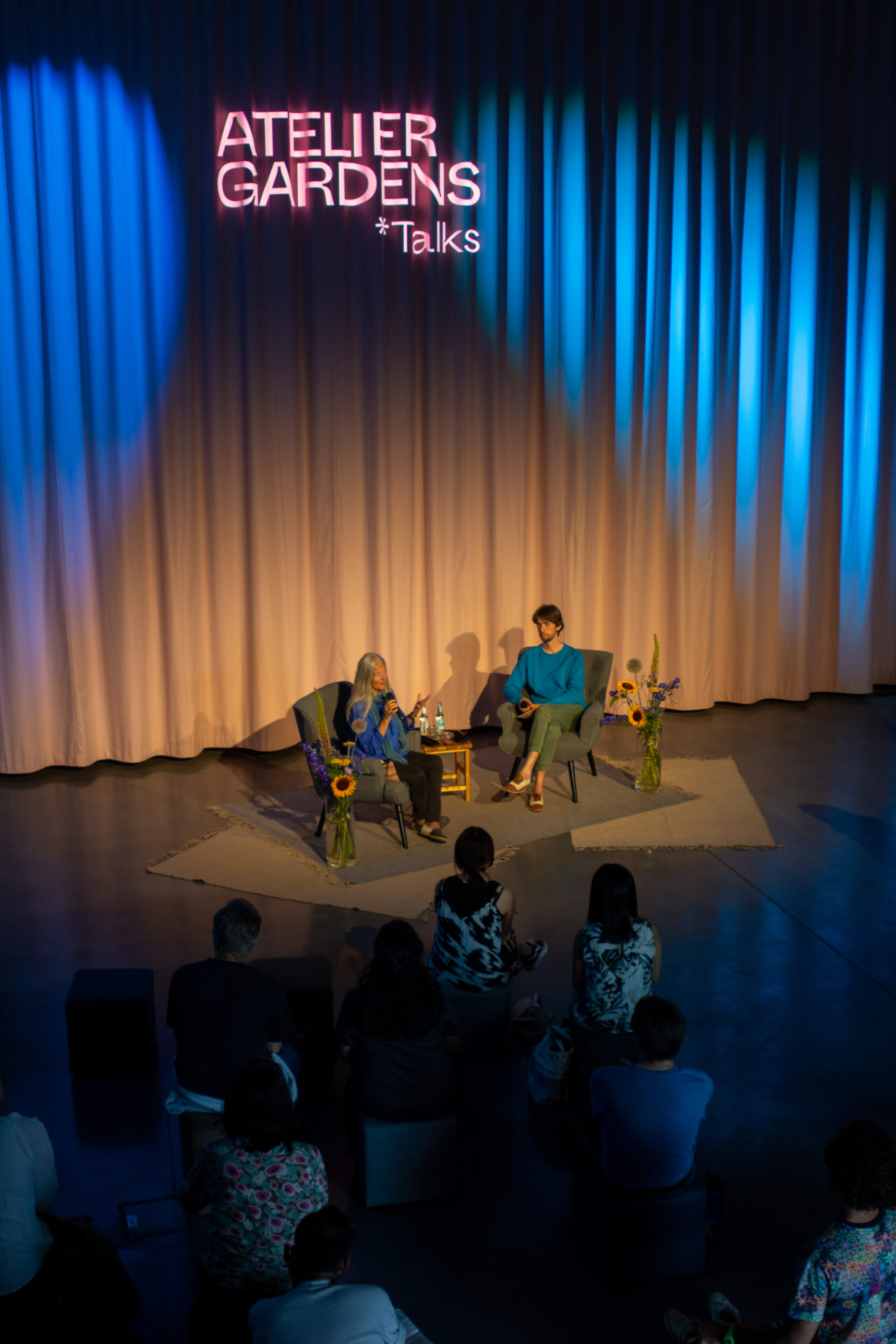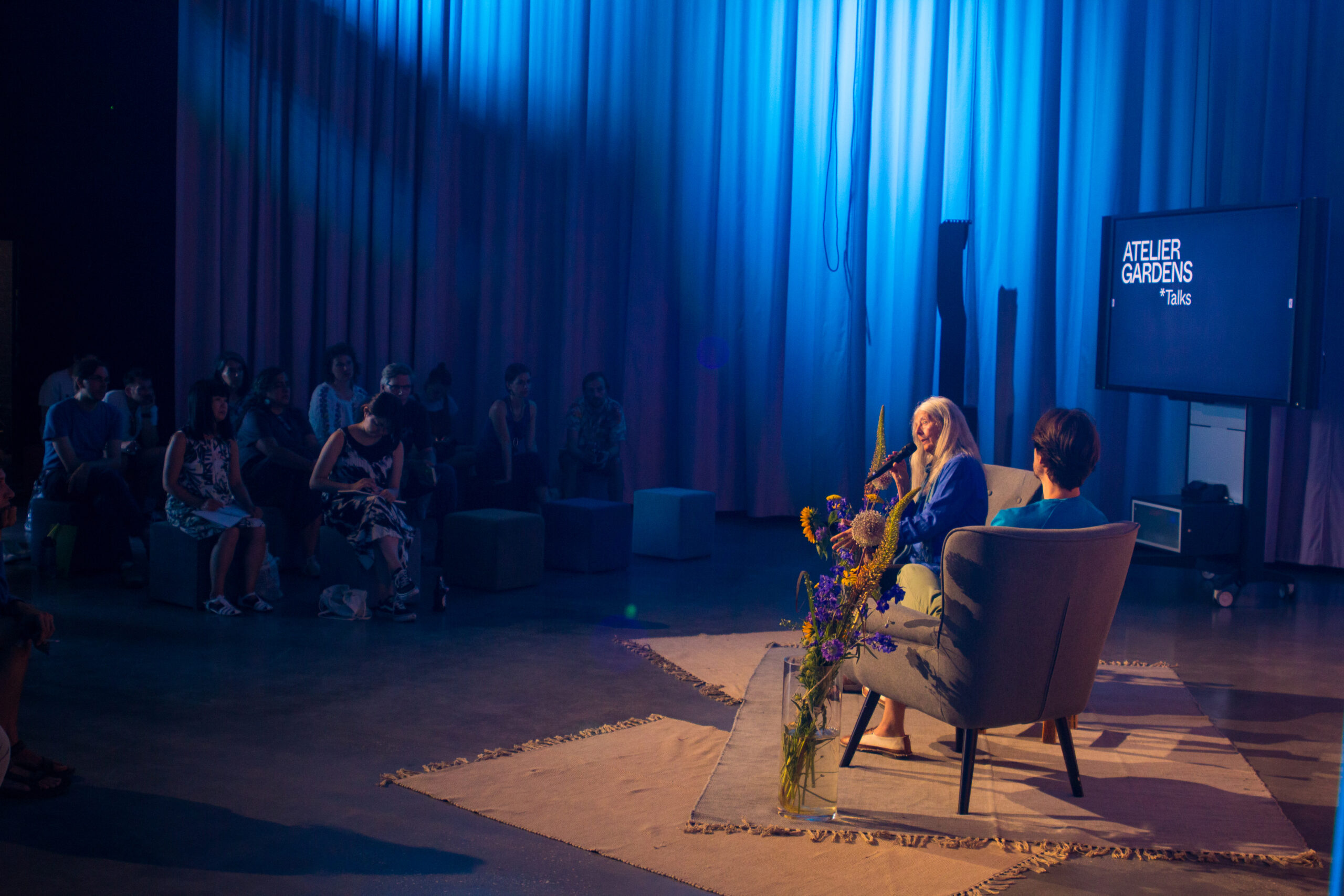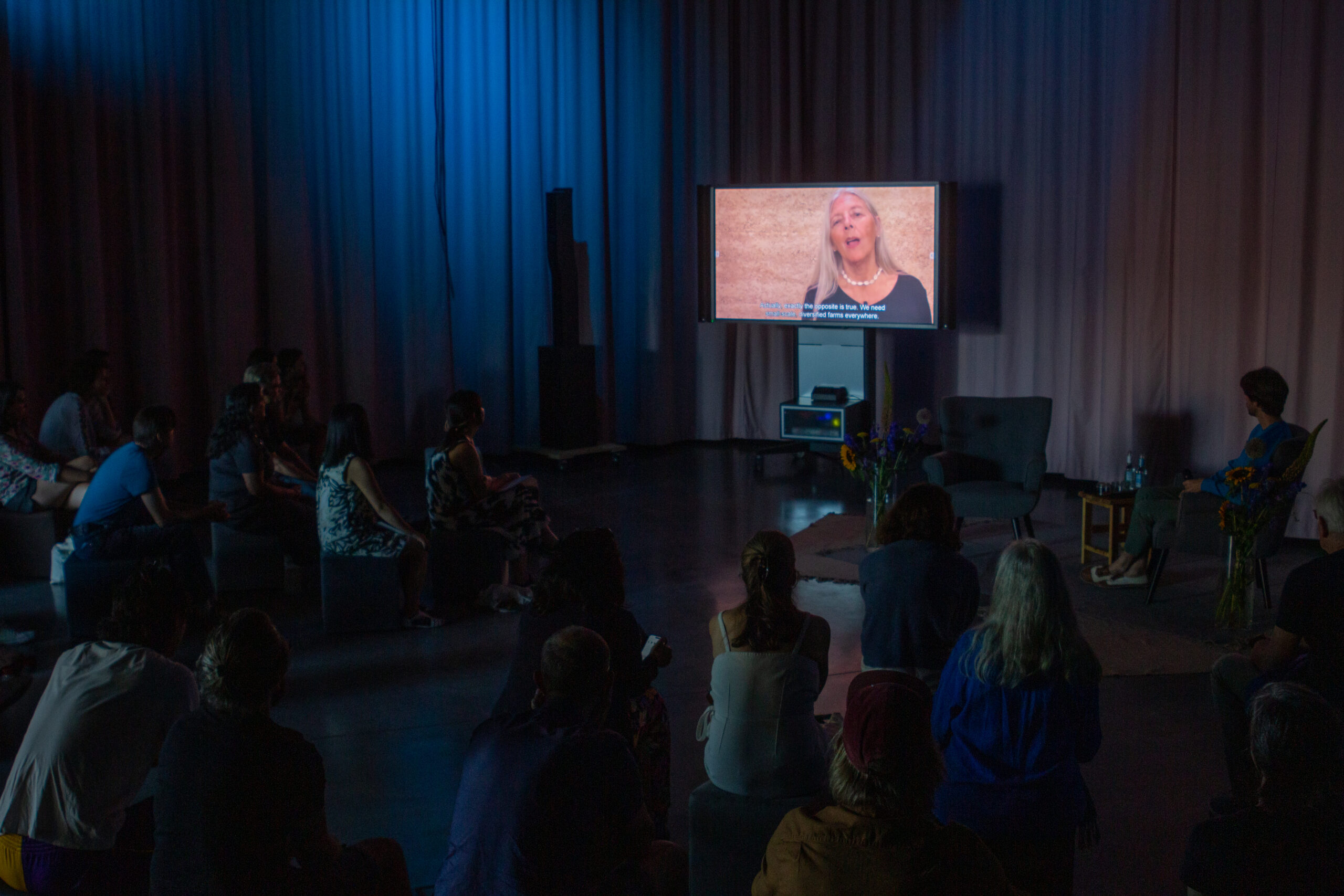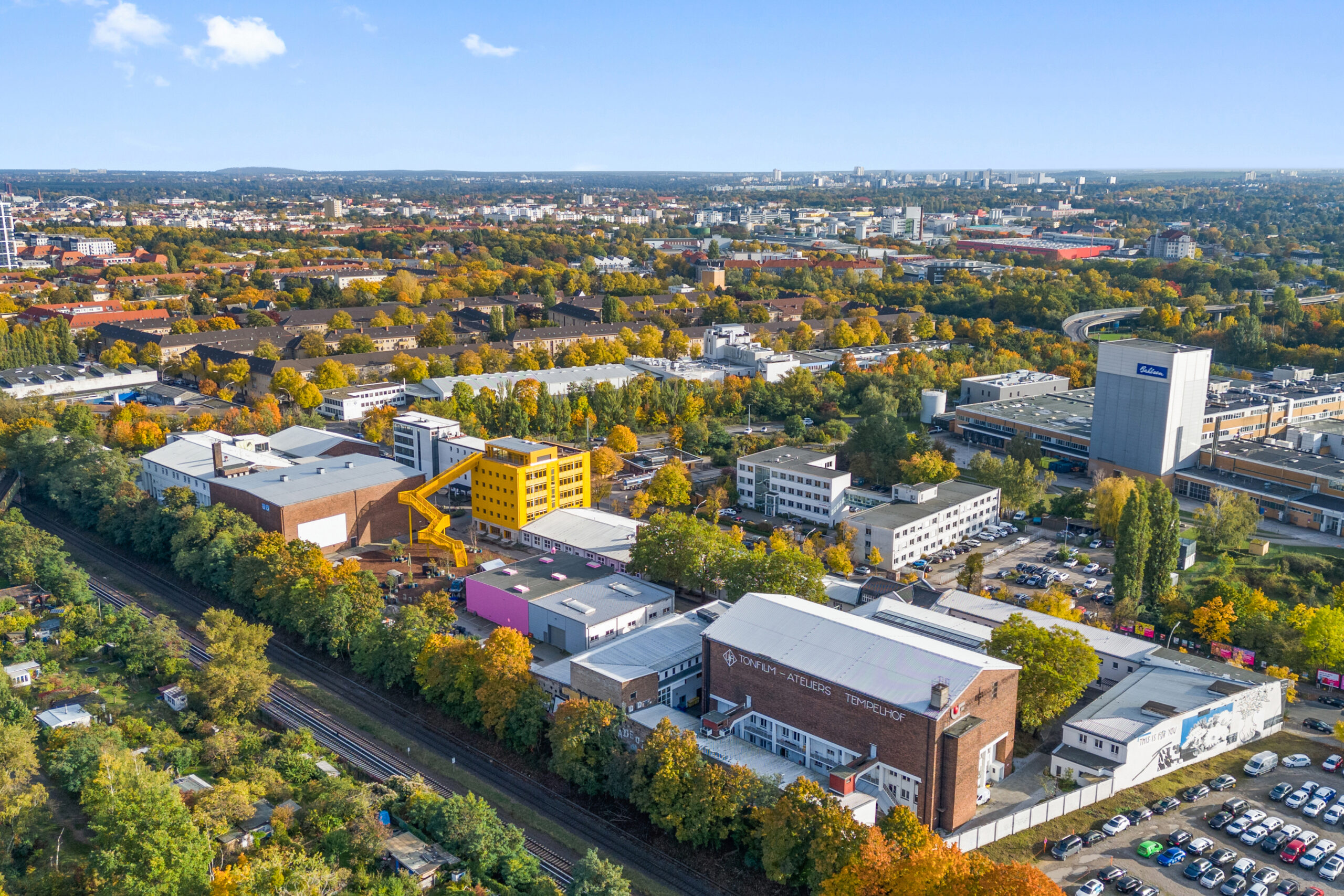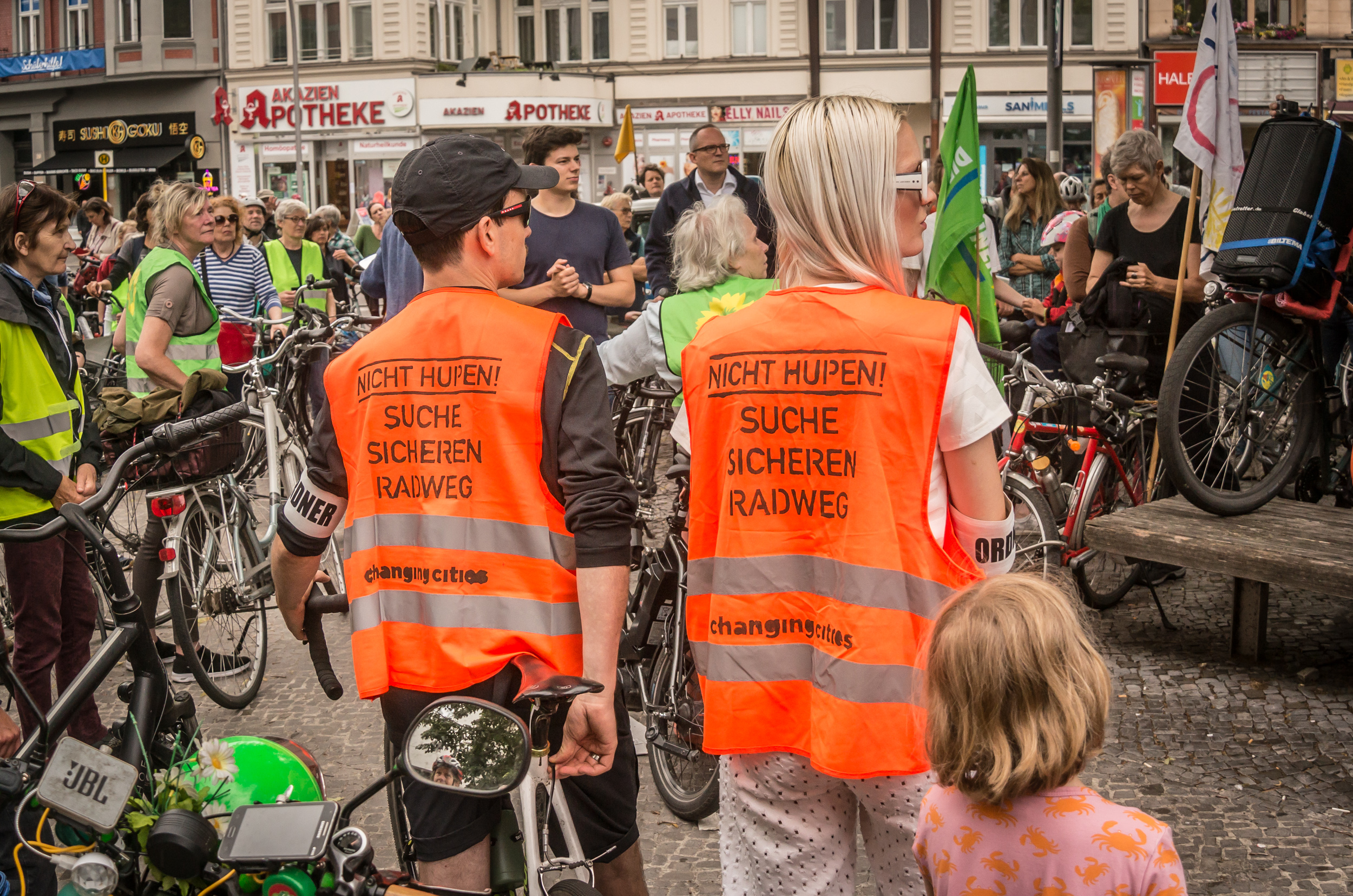*Talks Helena Norberg-Hodge
18.08.2023
Around fifty years ago, Helena Norberg-Hodge travelled to a small part of Tibet called Ladakh as part of a documentary film crew. At the time, the region was barely touched by the global economy and led the Swedish activist to a realisation that would shape her life. In the second talk in the series of events at Atelier Gardens, she will explain exactly what this realisation was and what consequences Norbert-Hodge drew from it.
Smaller, slower, local
Around 60 people have gathered in TON 1. The atmosphere on this evening is cosy, almost intimate – in keeping with Norberg-Hodge’s motto of localisation. The founder and director of the International Society for Ecology and Culture sits on a small stage with our Vision and Community Director Benjamin Rodriguez Kafka and explains: “When I arrived in Ladakh, I had the idea that we had to become smaller, slower and more local – that was the greatest moment of my life.”
Norberg-Hodge had already seen quite a bit of the world by then, having received her education in Sweden, Germany, Austria, England and the USA. She also speaks six languages fluently. And yet she discovers something completely new in Ladakh: “All the differences that I had recognised between cultures that I had known up to that point seemed null and void when I came into contact with this ancient and indigenous culture”. What is significant for her is that in the Ladakhi way of thinking there is an understanding that people are only part of the overall system of nature and must constantly adapt to it.
Localisation for health
“The Ladakhis were the happiest people ever,” says Norberg-Hodge. She talks about how she comes back to Sweden after travelling there, a country that everyone considers to be so successful. And yet, unlike in Ladakh, she sees alcoholism, depression and high suicide rates there. According to Norberg-Hodge, globalisation is to blame for this and so she develops a new concept: the economy of happiness. It is important to return to the local, to restore the connection to the community and to nature.
The absurdity that is sometimes associated with globalisation is illustrated by excerpts from Norberg-Hodge’s documentary “Planet Local”. Scottish prawns, for example, are shipped to Thailand for peeling after being caught, only to be sent back to Scotland. German foreign trade in milk can also only be described as bizarre: in 2020, Germany was not only the second largest importer of milk, but also an exporter. The Swede comments: “Our arms have become so long that we can no longer see what our hands are doing”. According to her, there is no way around global localisation.
More connection to people and nature
In this sense, Norberg-Hodge’s lecture is a continuation of Satish Kumar’s Soil, Soul and Society concept, which also drives our campus. The Indian activist kicked off the event series a few weeks ago with fascinating stories from his life of activism. You can read more about Kumar’s lecture, our campus and our upcoming events on our website.
"A global localisation movement is needed"
-
Helena Norberg-Hodge
Related news
